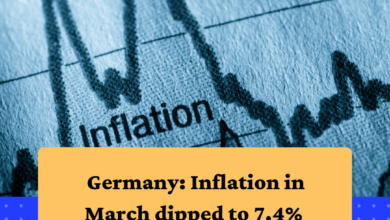Germany’s Housing Benefit to Increase at the Start of 2025
Germany’s Housing Benefit to Increase at the Start of 2025
Germany’s welfare payment, known as Wohngeld, designed to assist low-income workers and families with high rental costs, is set to increase at the beginning of 2025. This increase will provide much-needed relief as rental prices and the overall cost of living continue to rise across the country.

Key Details of the Increase
Starting on January 1st, 2025, the housing benefit will see a 15 percent increase, equating to an average of €30 more per month for recipients. This adjustment will raise the average housing benefit from approximately €370 to €400 per month.
The increase is part of a new ordinance adopted by the Federal Cabinet, awaiting approval from the Bundesrat. Federal Building Minister Klara Geywitz announced the increase on X (formerly Twitter), stating, “It’s a done deal. From 2025, the Wohngeld will be increased to take into account general price and rent developments.”
The Reason Behind the Increase
The rising cost of rent, energy, and everyday goods has led to a significant financial burden for many people in Germany. Federal Building Minister Klara Geywitz explained that the increase in Wohngeld is intended to help alleviate these pressures. The housing benefit amount is reviewed every two years to reflect basic price and rent developments. The last significant reform occurred in 2023, when the benefit was extended to a broader group of recipients.
Who Qualifies for Housing Allowance?
Wohngeld is available to a wide range of renters in Germany, provided their housing costs are deemed reasonable and higher than their income level. The Ministry of Construction has identified specific groups who are more likely to qualify for this benefit:
Several factors determine eligibility for the housing allowance, including rent price, property size and location, household income, and the number of people living in the rented household. There is also an income cap that varies depending on where you live. To check eligibility, the Ministry of Housing, Urban Development, and Building (BMWSB) provides an online calculator.
This planned increase in Wohngeld is a significant step in supporting low-income households in Germany, ensuring that they can meet their rental obligations without having to resort to more comprehensive welfare programs like the citizen’s allowance (Bürgergeld).
Read More at How to Abroad
How to find the right hospital in Germany when you get sick?
Germany Job Opportunity Card to Be Introduced from June 2024









